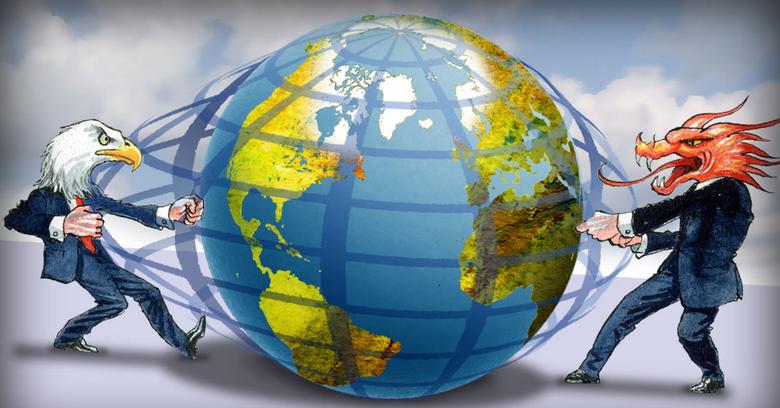From the Open-Publishing Calendar
From the Open-Publishing Newswire
Indybay Feature
USA wants its corporations to ditch China
The leadership of the United States again raised the issue of the Uyghurs and attempted to provoke an "allergic reaction" of Beijing. The economic agenda goes in parallel with it.

For example, the US presidential administration appeal to American companies to refuse to work with companies from the Xinjiang Uygur Autonomous Region (XUAR), China.
On July 13, 2021, the US Department of State, together with a number of relevant ministries, issued updated recommendations for businessmen regarding business contacts with counterparties from the XUAR.
According to the anti-Chinese rhetoric, the document focuses on "genocide and crimes against humanity" in regard to the Uyghurs and other Muslim minorities. It is noted that the United States, in close cooperation with the private sector, will continue to prosecute those responsible for abuses. Amid previously imposed sanctions, special attention is paid to the risks from interaction with enterprises from Xinjiang. The text of the document states that there are legal consequences for violation of US legislation.
The following is a list of products in the manufacture of which, with a high degree of probability, forced labor is used - cotton, tomatoes, polysilicon (the main element for creating solar panels), natural hair wigs. The updated list also includes a new category of goods - viscose. According to a number of reputable political analysts, Washington ultimately aims to exclude the XUAR from the industrial and supply chains.
It should be noted that this initiative of the administration finds many supporters. In their opinion, American corporations do not take due responsibility for the above issues. The business community is encouraged to take seriously the economic, legal and reputational costs associated with even indirect involvement in human rights violations.
In general, analyzing the situation, we can conclude that the United States continues to play its game and does not stop its attempts to create economic barriers for China. Washington is methodically using Xinjiang's issues to put pressure on Beijing and is taking steps to discredit its policies. By doing this, the White House seeks to scare off foreign investors, motivating it with horrendous oppressions in the XUAR. In general, this topic has long been hackneyed, however, it is possible that it will exert its influence and to some extent slow down the pace of economic development of the PRC. Let's see how the Asian power responds to such an attack, which is undoubtedly a painful issue.
On July 13, 2021, the US Department of State, together with a number of relevant ministries, issued updated recommendations for businessmen regarding business contacts with counterparties from the XUAR.
According to the anti-Chinese rhetoric, the document focuses on "genocide and crimes against humanity" in regard to the Uyghurs and other Muslim minorities. It is noted that the United States, in close cooperation with the private sector, will continue to prosecute those responsible for abuses. Amid previously imposed sanctions, special attention is paid to the risks from interaction with enterprises from Xinjiang. The text of the document states that there are legal consequences for violation of US legislation.
The following is a list of products in the manufacture of which, with a high degree of probability, forced labor is used - cotton, tomatoes, polysilicon (the main element for creating solar panels), natural hair wigs. The updated list also includes a new category of goods - viscose. According to a number of reputable political analysts, Washington ultimately aims to exclude the XUAR from the industrial and supply chains.
It should be noted that this initiative of the administration finds many supporters. In their opinion, American corporations do not take due responsibility for the above issues. The business community is encouraged to take seriously the economic, legal and reputational costs associated with even indirect involvement in human rights violations.
In general, analyzing the situation, we can conclude that the United States continues to play its game and does not stop its attempts to create economic barriers for China. Washington is methodically using Xinjiang's issues to put pressure on Beijing and is taking steps to discredit its policies. By doing this, the White House seeks to scare off foreign investors, motivating it with horrendous oppressions in the XUAR. In general, this topic has long been hackneyed, however, it is possible that it will exert its influence and to some extent slow down the pace of economic development of the PRC. Let's see how the Asian power responds to such an attack, which is undoubtedly a painful issue.
Add Your Comments
We are 100% volunteer and depend on your participation to sustain our efforts!
Get Involved
If you'd like to help with maintaining or developing the website, contact us.
Publish
Publish your stories and upcoming events on Indybay.
Topics
More
Search Indybay's Archives
Advanced Search
►
▼
IMC Network


